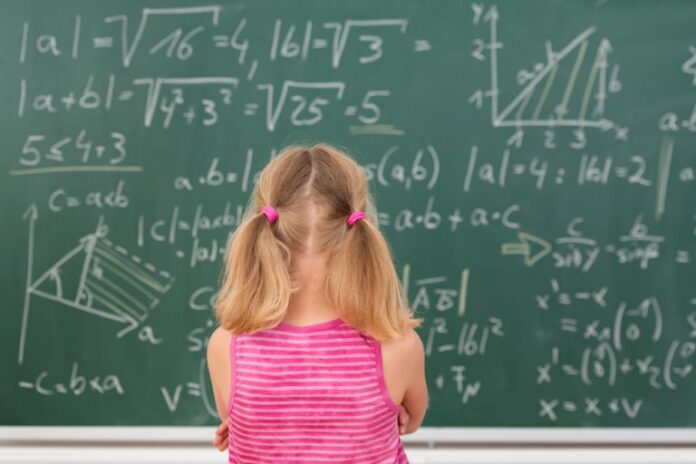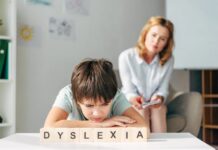There’s a funny thing about growing up: no one really teaches you how to be a person. Sure, we learn how to calculate the area of a triangle. We memorize the capitals of the world. Maybe even diagram a sentence or two.
But where in the curriculum is the part that teaches you how to cope with failure? Or how to speak up when your heart is racing? Or how to stay kind in a world that sometimes feels anything but?
That’s not an algebra problem. That’s emotional education. And it’s long overdue.
Education Needs a Redefinition—Or At Least a Refresh
The traditional classroom has long been a space built around performance: grades, tests, rankings. There’s value in structure, yes. But something gets lost when we focus too much on outcomes and too little on experience.
Children aren’t robots waiting to be programmed with facts. They’re entire humans—with moods, questions, fears, and messy inner worlds. And if we don’t help them make sense of that emotional landscape early on, we’re sending them into adulthood half-prepared.
Think about your own schooling. You probably remember the teacher who saw you, not just your spelling test. You remember the class discussion that made you feel heard. That’s the real stuff. That’s where education becomes something more than rote learning—it becomes connection.
Kids Aren’t Just Students—They’re People in Progress
There’s a myth we often fall into as adults: that children are simply “future versions” of people. That they’re just waiting to become who they’re meant to be.
But that does them a disservice. Kids are people. Right now. They have emotional needs. They deserve respect. They feel injustice deeply—even if they don’t have the vocabulary to explain it.
Education should reflect that. It should build spaces where a child’s mental and emotional well-being matters as much as their reading level. That means rethinking what we prioritize. It means giving just as much airtime to empathy as we do to arithmetic.
The Classroom as a Community, Not a Competition
One powerful shift we’re seeing in modern education—especially in thoughtful, progressive institutions—is a move toward collaboration over competition. Schools that focus on community, curiosity, and self-expression. Not just test scores.
Places like The Blue Coat School are setting a standard by nurturing the whole child, not just the academic achiever. Their approach leans into creativity, personal growth, and values that go beyond the classroom walls. In other words, they’re preparing children for life, not just the next grade.
And when you’re raising a child who’s sensitive, curious, or struggles with the rigidity of traditional classrooms, that approach can feel like a lifeline.
Emotional Intelligence Is the Real Success Metric
We spend a lot of time asking kids, “What do you want to be when you grow up?”
Maybe it’s time we also ask, “How do you want to be?”
Do you want to be kind? Resilient? Brave enough to fail and try again? Do you want to understand how to navigate a disagreement without shutting down or lashing out?
Because let’s face it—those are the skills that carry us through adulthood. Not long division.
The World Economic Forum even lists emotional intelligence as one of the top ten job skills of the future. That’s not a trend—it’s a wake-up call.
Learning Shouldn’t Feel Like Surviving
For too many kids, school becomes something they endure, not something they enjoy.
They learn to perform. To mask. To burn out chasing straight A’s or stay quiet to avoid attention. And slowly, the joy of discovery gets buried under anxiety and pressure.
But imagine if school felt like a safe space. A place to be seen and heard. To try and fail without shame. To learn not just what to think, but how to think. How to feel. How to stay curious even when things are hard.
That’s not just dreamy idealism—it’s possible. But it takes intention.
Parents Are Part of the Equation
Of course, education isn’t just a school thing. It’s a home thing, too.
Children watch us constantly. They notice how we talk about ourselves. How we react to stress. Whether we apologize when we’re wrong. Whether we value rest as much as we praise hustle.
If we want emotionally intelligent kids, we need to model that in real time.
That doesn’t mean being perfect. (In fact, showing them how we recover from imperfection might be the best gift of all.) It just means remembering that our emotional literacy teaches more than any textbook.
Wellness and Learning Go Hand in Hand
On a site like Brewing Happiness, where conversations around health, intentional living, and growth are central, we have to include education in that dialogue.
Because education is a form of wellness.
A school culture that embraces emotional learning creates mentally healthier adults. It lowers anxiety. It builds confidence. It helps kids feel in control of their thoughts, their relationships, and their goals.
And that ripple effect? It lasts. Kids raised in emotionally safe environments often grow into adults who build kinder workplaces, more compassionate families, and stronger communities.
Education That Nourishes, Not Just Instructs
If you’re reading this and you’re a parent, teacher, or even just someone who loves kids, maybe this isn’t new to you. Maybe you’ve been craving this shift for a long time.
You’re not alone.
We’re at a turning point in how we think about learning. The pandemic made it impossible to ignore the mental health crisis in young people. And now, more than ever, we’re asking: how can we do better?
The answer isn’t more worksheets. It’s more listening. More feeling. More helping kids know who they are, not just what they know.
What Comes Next
Change in education doesn’t happen overnight. But it does happen person by person. School by school. Conversation by conversation.
You don’t have to overhaul the whole system. You just have to start by asking better questions. Demanding more empathy. Valuing connection over perfection.
The next generation is already watching us. Let’s give them something worth learning from.




